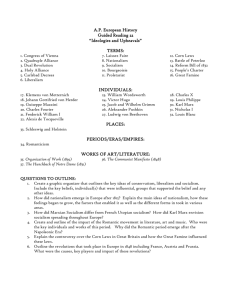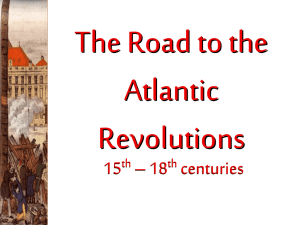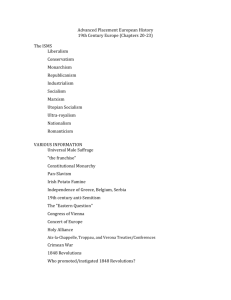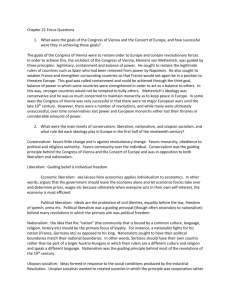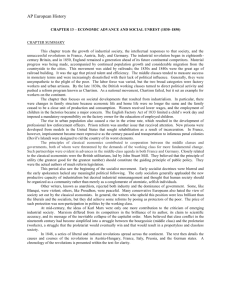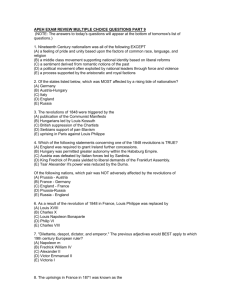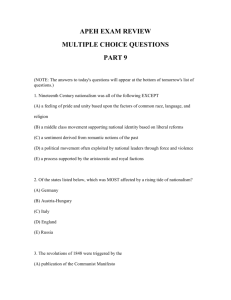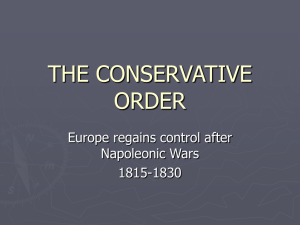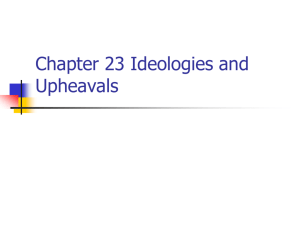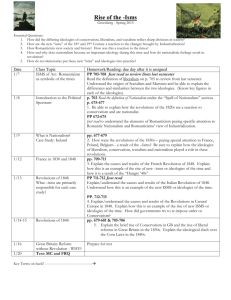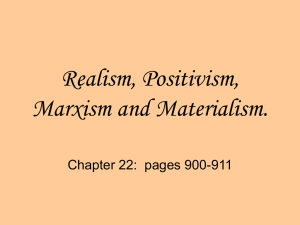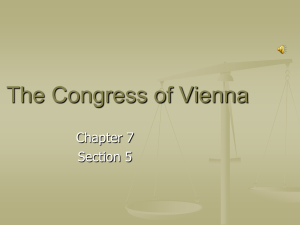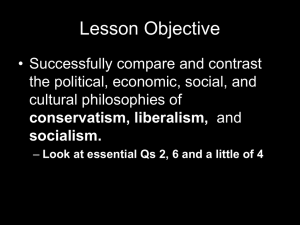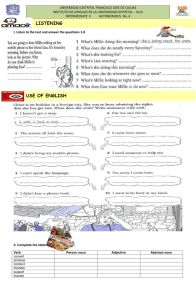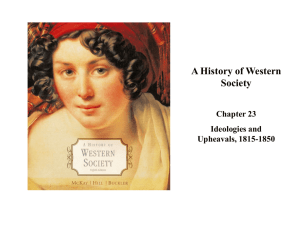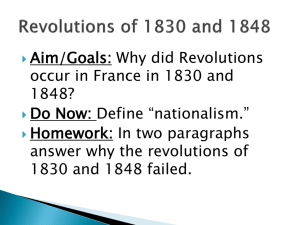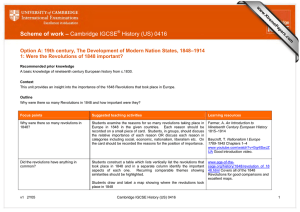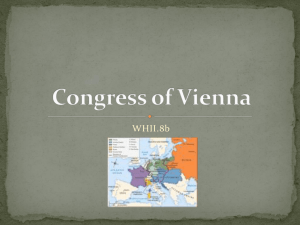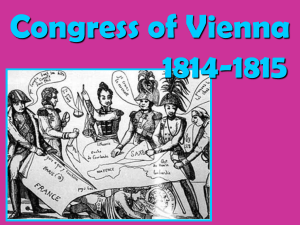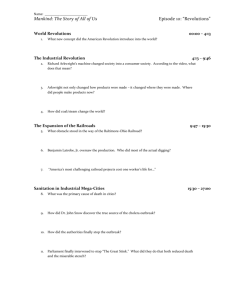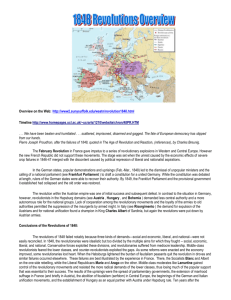Revolution and Reaction in 19th century Europe
advertisement
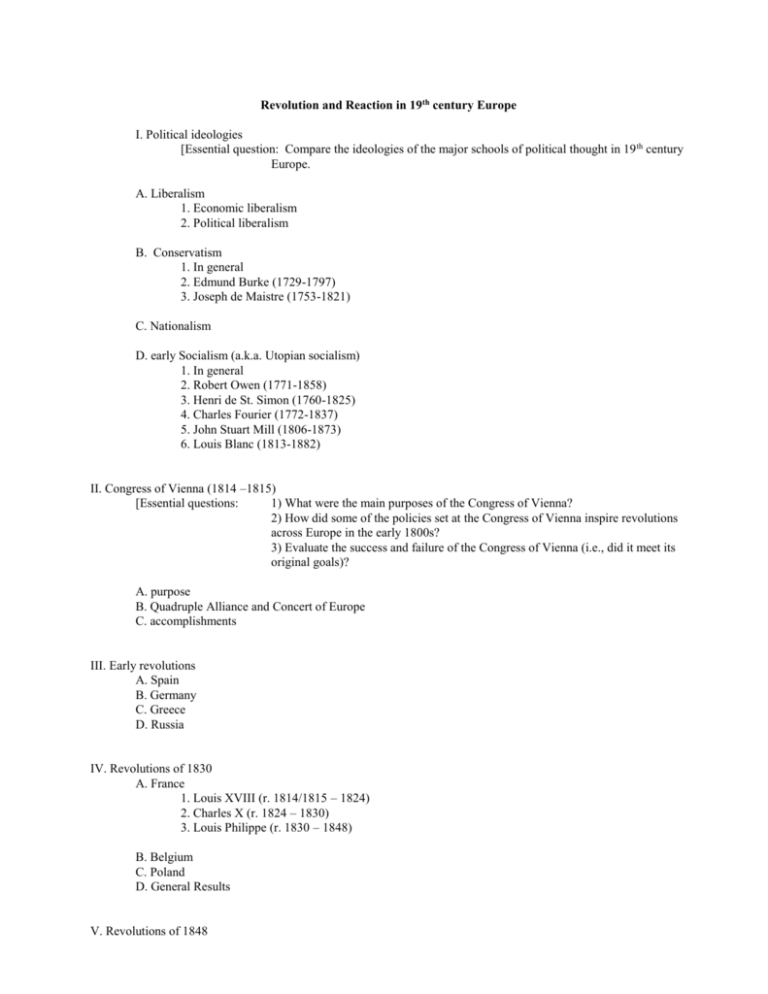
Revolution and Reaction in 19th century Europe I. Political ideologies [Essential question: Compare the ideologies of the major schools of political thought in 19 th century Europe. A. Liberalism 1. Economic liberalism 2. Political liberalism B. Conservatism 1. In general 2. Edmund Burke (1729-1797) 3. Joseph de Maistre (1753-1821) C. Nationalism D. early Socialism (a.k.a. Utopian socialism) 1. In general 2. Robert Owen (1771-1858) 3. Henri de St. Simon (1760-1825) 4. Charles Fourier (1772-1837) 5. John Stuart Mill (1806-1873) 6. Louis Blanc (1813-1882) II. Congress of Vienna (1814 –1815) [Essential questions: 1) What were the main purposes of the Congress of Vienna? 2) How did some of the policies set at the Congress of Vienna inspire revolutions across Europe in the early 1800s? 3) Evaluate the success and failure of the Congress of Vienna (i.e., did it meet its original goals)? A. purpose B. Quadruple Alliance and Concert of Europe C. accomplishments III. Early revolutions A. Spain B. Germany C. Greece D. Russia IV. Revolutions of 1830 A. France 1. Louis XVIII (r. 1814/1815 – 1824) 2. Charles X (r. 1824 – 1830) 3. Louis Philippe (r. 1830 – 1848) B. Belgium C. Poland D. General Results V. Revolutions of 1848 [Essential questions: 1) Summarize the political/diplomatic, social/economic, and cultural/intellectual influences on the European revolutions in 1848. 2) Compare and contrast the events and outcomes of the revolutions in various European countries. A. general ideas 1. Political/diplomatic influences 2. Social/economic influences 3. Cultural/intellectual influences 4. General patterns of revolution B. France 1. Problems under Louis Philippe 2. The National Assembly 3. The Constituent Assembly 4. The Second Republic C. Austrian Empire D. Italy E. Germany 1. Prussia 2. Frankfurt Assembly VI. Britain’s different experience [Essential question: Why, despite difficult living conditions, was there no major revolt in Britain in the 19th century? A. political arrangements in 1815 B. living conditions in 1815 C. government reactions to crises 1. repression 2. reform VII. Later political ideologies [Essential question: Outline Marx’s ideas about labor, the economy, and history. A. Marxism 1. Marx (1818-1883) 2. Marx’s beliefs 3. Communist Manifesto 4. Das Kapital 5. criticisms of Marx B. Anarchism C. Christian Socialism
